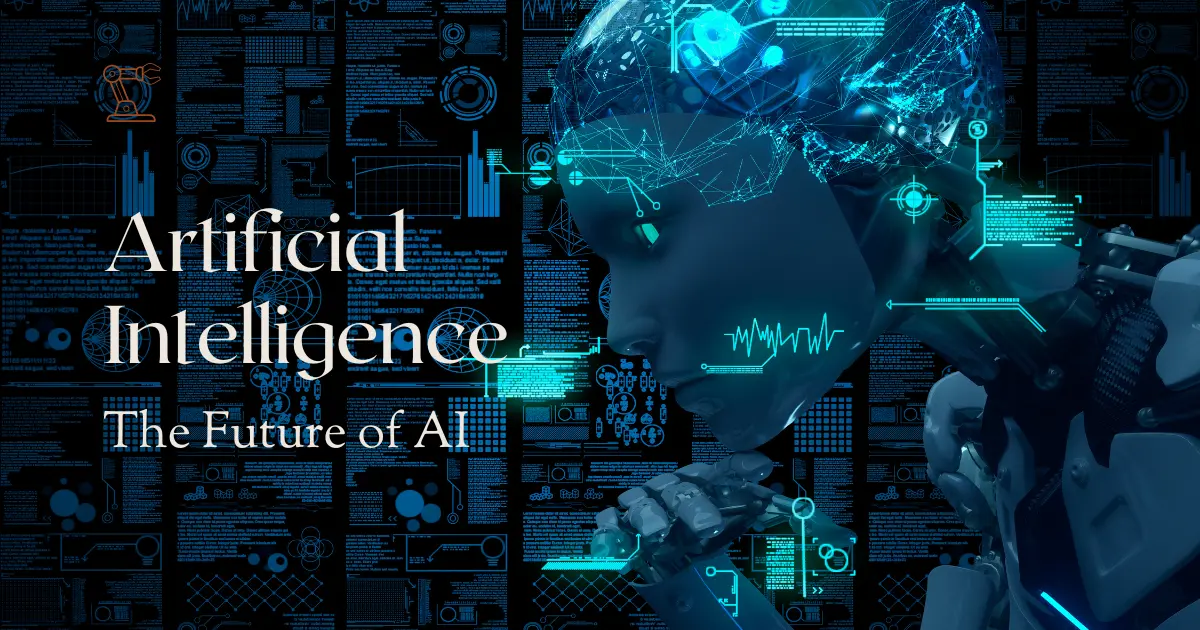As we hurtle towards a future where artificial intelligence (AI) is poised to revolutionize every aspect of our lives, it becomes imperative to pause and reflect on the ethical considerations and challenges that accompany this groundbreaking technology. From autonomous vehicles making split-second life-or-death decisions to AI algorithms influencing our social media feeds and even judicial sentencing, the implications of AI are far-reaching and profound. The intersection of cutting-edge innovation with age-old ethical dilemmas poses a complex puzzle for society to unravel, raising questions about accountability, bias, privacy, and the very essence of humanity itself in the face of rapidly advancing machines. Join us as we delve into the heart of this technological frontier to explore the moral maze that lies ahead in The Future of AI: Ethical Considerations and Challenges.
Ethical considerations in AI decision-making processes
Ensuring ethical considerations are embedded in AI decision-making processes is essential to prevent potential harm and ensure fairness and accountability. One key consideration is the need for transparency in AI algorithms, allowing users to understand how decisions are made and ensuring that biases are identified and addressed. Additionally, privacy concerns must be carefully managed to protect sensitive data from misuse or unauthorized access. Collaborative efforts between technologists, policymakers, ethicists, and other stakeholders are crucial to establish guidelines that prioritize ethical values over profit.
Another emerging concern is the challenge of moral agency in AI systems, as they become more integrated into daily life. Questions of responsibility arise when AI makes decisions with significant consequences, raising issues about who should be held accountable for outcomes. Moreover, there is a growing recognition of the need for diverse perspectives in creating AI systems to avoid reinforcing existing inequalities or perpetuating harmful stereotypes. By actively engaging with these ethical considerations, we can harness the potential of AI technology while safeguarding against unintended negative impacts on society.
Bias and fairness in AI algorithms
Imagine a world where AI algorithms are not just powerful tools, but also fair and unbiased decision-makers. This ideal scenario is currently hindered by the inherent biases embedded in many existing algorithms. It’s important to understand that these biases do not emerge out of thin air; they are often reflections of the data used to train these algorithms, which can be inherently biased due to historical discrimination and societal inequalities.
To mitigate bias in AI algorithms, we need to prioritize inclusive and diverse datasets during the training process. Additionally, incorporating human oversight and auditing processes can help detect and rectify instances of bias in algorithmic decision-making. Ultimately, achieving fairness in AI algorithms requires a multi-faceted approach that addresses societal inequalities, promotes diversity in tech teams, and places an emphasis on ethical considerations throughout the development process.
Privacy concerns with the increasing use of AI technology
As AI technology becomes more integrated into our daily lives, concerns about privacy are at the forefront of discussions. The ability of AI systems to collect and analyze vast amounts of data raises questions about who has access to this information and how it will be used. One major concern is the potential for these technologies to infringe on individual privacy rights by tracking personal data without consent or transparency.
Furthermore, the use of AI in surveillance systems has raised alarms about the implications for civil liberties and personal freedoms. As algorithms become more sophisticated in identifying individuals and predicting behavior, there is a growing risk of mass surveillance and erosion of privacy. The lack of clear regulations surrounding the use of AI in terms of data protection and privacy only adds to these concerns, leaving many feeling vulnerable in an increasingly digital world.
Accountability and transparency in AI systems
Accountability and transparency in AI systems are crucial to ensure ethical use and decision-making. As AI technology continues to advance, the need for accountability becomes more pressing. Stakeholders must be held responsible for the outcomes of AI systems, whether it is in healthcare, finance, or other industries. Transparency in how these systems make decisions is essential for building trust with users and ensuring unbiased results.
One challenge in achieving accountability and transparency in AI is algorithm complexity. As algorithms become more sophisticated, it can be difficult to trace back decisions made by AI systems. This lack of interpretability can lead to unintended consequences and biases in the outcomes produced. To address this issue, researchers are developing techniques such as explainable AI to provide insights into the decision-making process of these complex algorithms.
Moving forward, regulatory bodies and organizations must work together to establish guidelines for accountability and transparency in AI systems. By setting standards for data collection, model training, and decision-making processes, we can ensure that AI technologies are used responsibly and ethically. Additionally, fostering a culture of openness and collaboration among industry players will further promote transparency in the development and deployment of AI solutions.
The impact of AI on job displacement and workforce changes
In the age of rapid technological advancement, AI is transforming industries and reshaping the workforce at an unprecedented pace. While AI has the potential to streamline processes, increase efficiency, and drive innovation, it also poses a significant threat to job displacement. Many routine tasks that were previously performed by humans are now being automated by AI systems, leading to concerns about mass unemployment and economic instability.
As AI continues to evolve, new job roles are emerging that require skills in areas such as data science, cybersecurity, and programming. The workforce must adapt and upskill to stay relevant in an increasingly automated world. Organizations need to invest in retraining programs and education initiatives to help workers transition into new roles that are less susceptible to automation. It is crucial for policymakers, businesses, and individuals alike to collaborate on addressing the challenges posed by AI-driven job displacement and prepare for a future where human-machine collaboration is the norm rather than the exception.
Regulations and guidelines for the responsible development and deployment of AI
The responsible development and deployment of AI require a robust framework of regulations and guidelines to ensure ethical use and mitigate potential risks. One crucial aspect is transparency in AI systems, where developers should provide clear explanations on how these systems reach decisions to promote trust among users. Additionally, there is a need for accountability mechanisms to hold developers responsible for any biases or errors that might arise from AI algorithms.
Another key consideration is the protection of user data privacy, as AI systems often rely on vast amounts of personal information. Implementing strict data governance measures can help prevent misuse or unauthorized access to sensitive data. Moreover, collaboration between policymakers, industry stakeholders, and ethicists is essential in creating comprehensive policies that balance innovation with ethical considerations in the rapidly evolving field of artificial intelligence.

